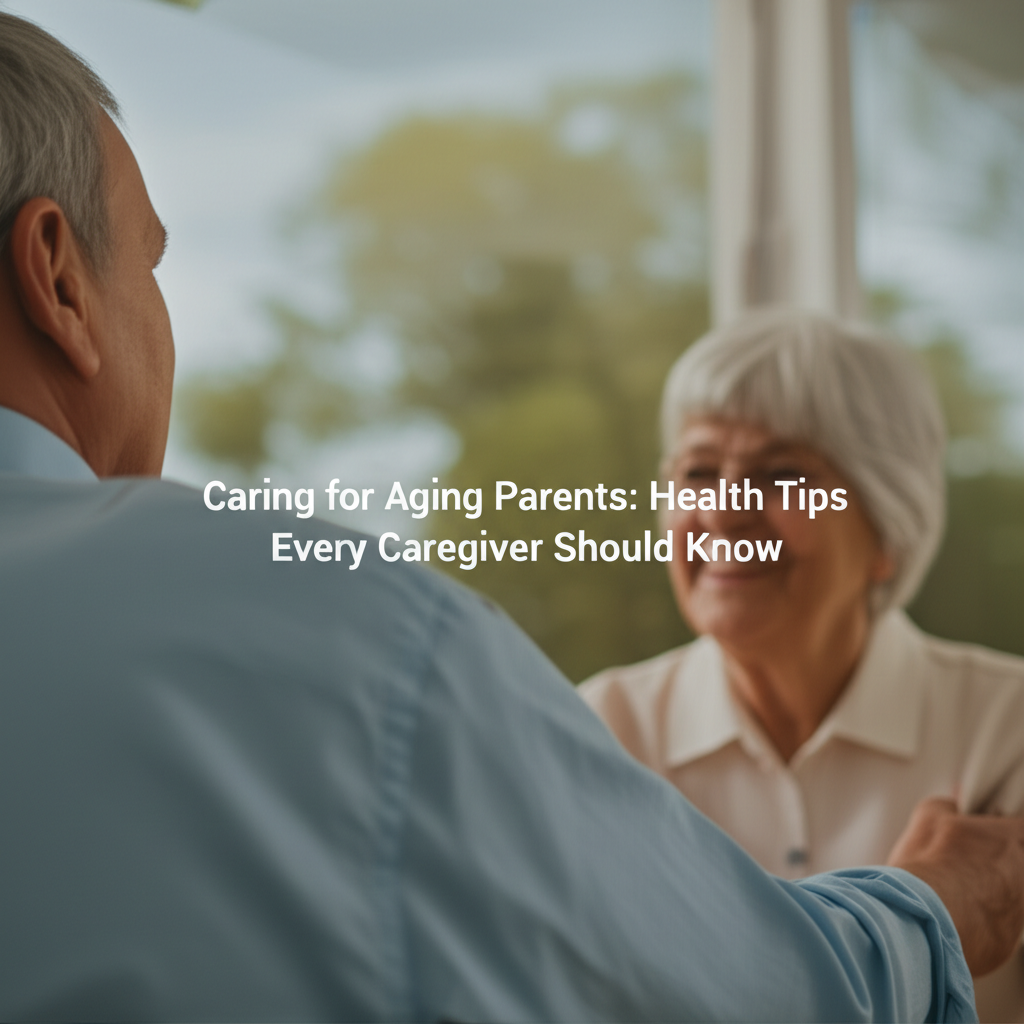
Caring for Aging Parents: Health Tips Every Caregiver Should Know
Caring for aging parents is a rewarding but challenging journey. As they age, their health needs often become more complex, requiring caregivers to be informed and proactive. This guide provides essential health tips to help you navigate this important role effectively and ensure your parents receive the best possible care.
Understanding the Challenges of Aging
The aging process brings about various physical and cognitive changes. Common health concerns among older adults include:
- Heart disease: High blood pressure, high cholesterol, and heart failure become more prevalent.
- Arthritis: Joint pain and stiffness can significantly impact mobility and daily activities.
- Diabetes: Managing blood sugar levels is crucial to prevent complications.
- Dementia and Alzheimer's disease: These cognitive disorders can lead to memory loss, confusion, and behavioral changes.
- Falls: Falls are a major concern for older adults, often leading to serious injuries.
- Vision and hearing loss: These sensory impairments can impact safety and quality of life.
Essential Health Tips for Caregivers
1. Regular Health Checkups: Schedule regular appointments with your parents' doctors for preventative care and to monitor any existing health conditions. Encourage them to be open and honest about their symptoms.
2. Medication Management: Help your parents manage their medications correctly. Organize their pills, set reminders, and ensure they understand how and when to take each medication. Consult their pharmacist or doctor if you have any questions.
3. Healthy Diet and Exercise: Encourage a balanced diet rich in fruits, vegetables, and whole grains. Regular physical activity, even gentle exercises like walking, is crucial for maintaining strength, balance, and overall health. Adapt exercises to their physical capabilities.
4. Fall Prevention: Make the home environment safe by removing tripping hazards, installing grab bars in the bathroom, and ensuring adequate lighting. Consider assistive devices like canes or walkers if necessary.
5. Cognitive Stimulation: Engage your parents in mentally stimulating activities such as puzzles, reading, or social interaction to help maintain cognitive function. This is especially important for those at risk of dementia.
6. Social Interaction: Encourage social interaction to combat loneliness and isolation. Arrange visits with friends and family, or consider joining senior centers or social groups.
7. Emotional Support: Aging can be emotionally challenging. Provide emotional support and listen empathetically to your parents' concerns and fears. Encourage them to talk about their feelings.
8. Monitor for Changes: Pay close attention to any changes in your parents' health, behavior, or cognitive function. Report any concerns to their doctor immediately.
9. Seek Professional Help: Don't hesitate to seek professional help from doctors, therapists, or other healthcare professionals when needed. They can provide expert guidance and support.
10. Self-Care for Caregivers: Caring for aging parents can be demanding. Remember to prioritize your own well-being. Make time for self-care activities, seek support from family or friends, and consider joining caregiver support groups.
Conclusion
Caring for aging parents requires patience, understanding, and a commitment to their well-being. By following these health tips and proactively addressing their needs, you can help ensure a comfortable and fulfilling life for your parents while maintaining your own health and emotional well-being. Remember that seeking support is a sign of strength, not weakness.
Hashtags:#agingparents #caregiver #healthtips #elderlycare #seniorhealth Labels: agingparents,caregiver,healthtips,elderlycare,seniorhealth
No comments:
Post a Comment